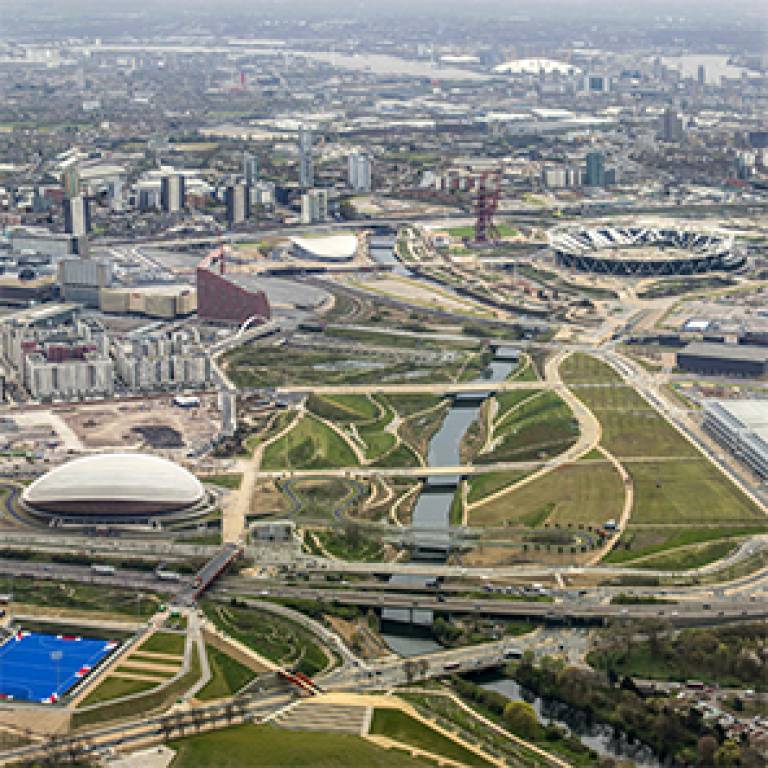Imagining the future campus
13 July 2015

In developing the academic vision for UCL East, it has helped me a great deal to reflect on UCL's foundation.
Nearly 200 years ago, a small group of people proposed a radical new vision of what a university should be, and what it should be for. They set about to challenge the prevailing dominance of Oxford and Cambridge, but more significantly they re-imagined the university as a force for social good - one that sets out to disrupt the social status quo.
They challenged the existing limits on who should be able to attend university (at that point, 'Oxbridge' admitted only male members of the Church of England) but also what topics were addressed (for example, introducing teaching and research in architecture, civil engineering and medicine).
Over almost two centuries, UCL has developed into one of the world's leading universities, committed to using our collective expertise to address global challenges.
The opportunity at UCL East
The development of UCL East in Queen Elizabeth Olympic Park (QEOP) presents a very rare opportunity to build on that original vision for UCL, exploring it anew in the context of 21st-century London. We want UCL East to offer a new kind of university environment, focused on the facilitation of collaboration, connection and open innovation with local and global communities.
Below you can see a short flyover video of the UCL East location within QEOP, which will give you some idea of the scale and potential of the new development:
UCL East will:
- be a home for new UCL activities, not simply an extension of our Bloomsbury campus - while liberating space and enabling new opportunities in the Bloomsbury estate
- serve as a model for the university campus of the future - open, dynamic and overcoming the conventional barriers between research, education, innovation, public engagement and collaboration
- provide an outstanding environment for learning and scholarship for students, staff, collaborators and the public
- as a founder member of 'Olympicopolis', play a central role in the sustainable development of QEOP and east London's innovative quarter more generally
- facilitate delivery of UCL 2034, the university's 20-year strategy.
To fulfil this vision over the next two centuries, the campus will also need to be configured so flexibly that it will be able to respond to changes that are beyond our current capacity to predict. Delivery of UCL East will require a changed mindset; dealing with the opportunities and challenges of the future campus rather than constraints and inefficiencies associated with our 200-year-old campus.
Many of the bids for space in UCL East are impressively creative and radical, and are becoming more so through the active dialogue to refine our ideas that we have been undertaking during recent months. The activities proposed could fill UCL East many times over, and we have some challenging decisions to make in the coming months as we gradually refine our programme of activity. The first wave of academic activities to be developed will focus on three or four 'anchor activities', exemplifying cross-disciplinarity, openness, innovation, engagement and collaboration. We anticipate that these will include areas such as participatory design, heritage and engineering.
Just as was the case for our founders, we are trying something new and difficult under public scrutiny. Just as Bloomsbury has grown and changed, influencing us and influenced by us, so QEOP and its neighbours in the east of London will evolve, shaping our campus and being shaped by it. Just as our founders laid the groundwork for today's UCL community to thrive, so too we aim to leave a legacy that will enable future generations to fulfil their promise and that of their university.
UCL East must provide a platform for future generations to reinvent not just our university, but the concept of what a university is. We look forward to doing so in partnership with our QEOP neighbours and local communities.
Professor David Price, Vice-Provost (Research) and Chair of the UCL East Academic Programme Board
Image
- Courtesy of London Legacy Development Corporation (LLDC).
 Close
Close

